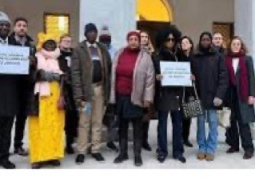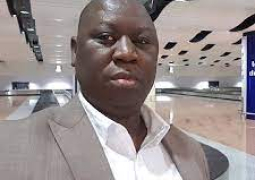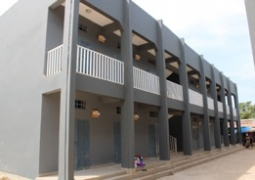Dwelling on the 10th of November 1994 decree that targeted former senior government officials’ financial status and living conditions, Mbai said the decree was important in the quest to promote transparency and accountability.
However, the lead Counsel Essa Faal put to him that this was the decree most people complained about because people were forcefully removed from their properties. However, the witness said he was once a victim of property eviction and later admitted that the decree violated the rights of people.
Faal added that they condemned the bad application of the decree to other people as well as Mbai, adding “it seemed some individuals were targeted during the draft of the decree.” The witness, however, responded he never attended a meeting where people were named to be targeted.
Counsel Faal said the decree of asset freezing drafted on 15 November 1994, affected Momodou Lamin Daffeh, Dembo Kanteh, Malick Njie, Sarra Janha, Abu Denton, Daddy Jobe, Omar B. Cham and others.
Decree 16 that emphasised the economic crime, Faal said enabled the government to detain individuals for 30 days without taking them to court. The witness accepted that, saying that decree was bad but was not very bad. However, Faal told him whether bad or very bad, all are bad and ought not to happen.
With regard to Decree 25 that lower the powers of the courts, Mr. Mbai said he was a victim of the decree, as he was charged for not paying tax amounting to D1.5 million.
Commenting on the decree that mandated the freezing of accounts of people, the witness admitted that the bad decrees were drafted by his office and enacted by the council.
“The decrees were established some days before my appointment and some days after my appointment and I was not part of the drafters. At the office of the Attorney General, there was an office responsible for the drafting of the decrees that the council believed were rights and I was only to give advice. I have advised them to the decrees that would have violated the rights of people but my advices were never taken.”
“The soldiers marked the way for the fundamental issues on how to rule. Both the soldiers and the people wanted accountability on the country’s economy and that is part of human rights.”
On the execution of soldiers who were alleged of attempted coup on November 11, the witness made it clear that he was never named by any witness for taking part in that incident.
Counsel Faal agreed with him that there was no evidence to show he was involved. “November 11 was never discussed at the level of the council.”
The veteran lawyer continued that in 1996, he was arrested by police officers at the Farrafenni Ferry Crossing Point without charges.
“The following day, I was taken to Banjul and received by CMC Jawara. The next day, the Observer Newspaper’s headline stated that I wanted to abscond. It pains me and I reacted that I am very old to leave the country and if I wanted to abscond, then I wouldn’t have waited too long or even used the Farrafeeni road. All my houses and furniture with cars were seized by the council.”
He confirmed to the commission that his compound was later returned to him by Jammeh led government after writing a letter of appeal.
Read Other Articles In Headlines





